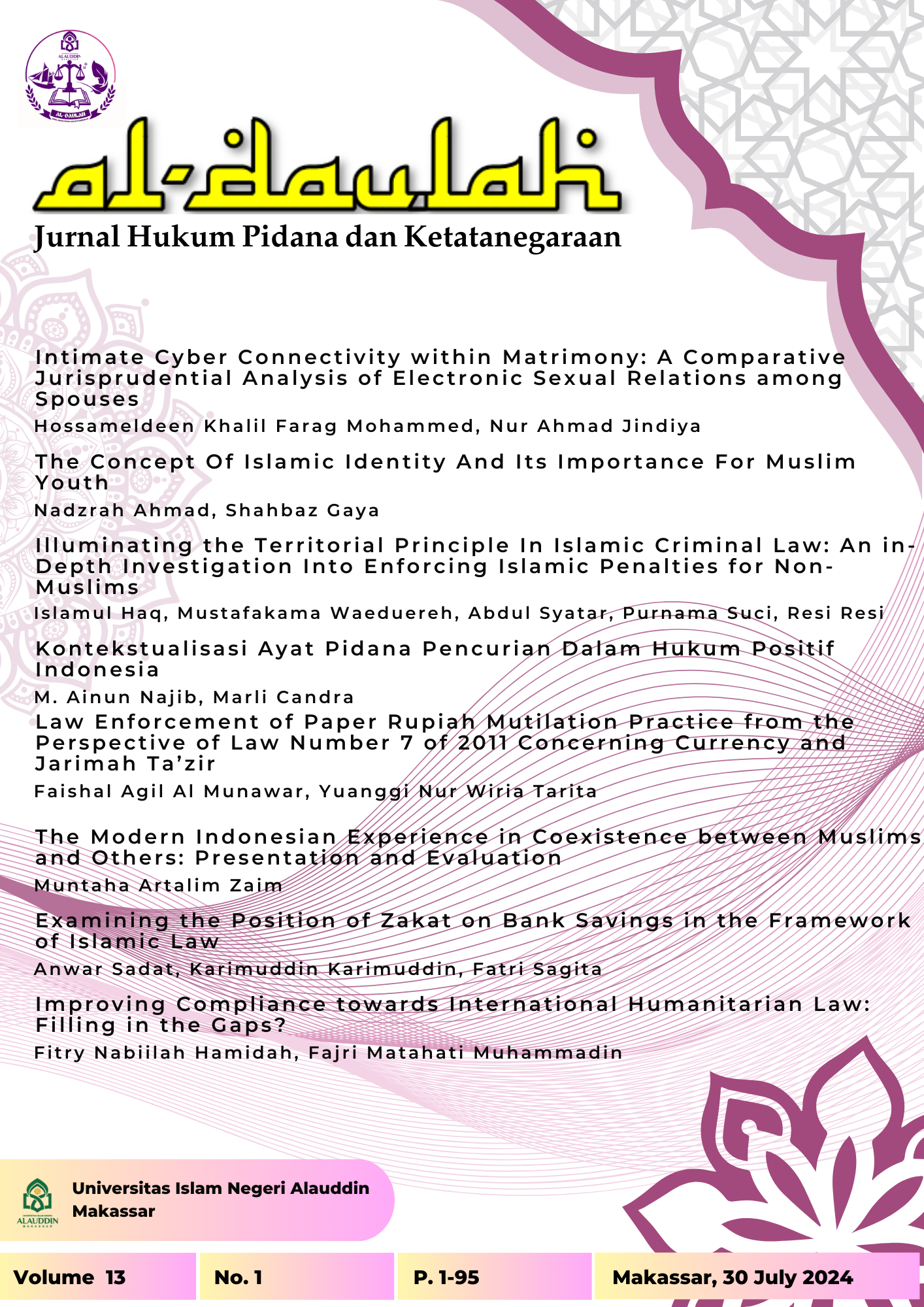Najamuddin Al-Ṭūfīy dan Konsep MaṢlaḤat
Abstrak
For al-Ṭūfīy, maṣlaḥat is a central objective laws revealed to His servant. Benefit is a power of the human mind to beat the heat and the strength of the consensus that multiple interpretations. Al-Ṭūfīy considers reasonable force to achieve the highest place than hot (khabar aḥad) were not qaṭ'iy. Neither the ijma' that in view of al- Ṭūfīy very difficult to create. Beneficiaries according to al-Ṭūfīy able to replace the authenticity of heat and ijma 'in case of doubt to both. However, thinking about the benefits of al-Ṭūfīy has made the haters menggelarinya with various titles such as al-mulhid, al-fisk, and so on. This title is purely due to their hatred of al-Ṭūfīy. In addition, it also causes their hatred then never quoting al-Ṭūfīy intact.
Referensi
Abbās, Alāwi dan Ḥasan Sulayman, Ibānat al-Aḥkām; Syarh Bulūg al-Maram, Juz I, Beyrūt; Dār al-Fikr, 1996
al-‘Amiri, Abd Allāh Muḥammad al-Husayn, Al-Thufi’s Refutation of Traditional
Muslim Juristic Sources of Law and His View on Priotity of Regard of Human Welfare as the Highetst Legal Sources or Principle Alih Bahasa oleh Abdul Basir dengan judul Dekonstruksi Sumber Hukum Islam; Pemikiran Hukum Najm Ad Din Thufi, Jakarta: Gaya Media, Cet. I. 2004
Ash Shiddieqy, TM. Hasbi, Falsafah Hukum Islam Cet. IV; Bulan Bintang: Jakarta, 1974
Nasution, Harun, Islam Ditinjau Dari Berbagai Aspeknya Jakarta: UI Press, 2008
Yazid, Abu, Islam Akomodatif, Rekonstruksi Pemahaman Islam sebagai Agama Universal
The authors of a work hold the copyright and grant the Al-Daulah: Jurnal Hukum Pidana dan Ketatanegaraan the right of first publication. The work is also licensed under the Creative Commons Attribution License (CC BY 4.0), which enables others to share the work while acknowledging the authorship and initial publication in the journal. The authors can make separate contractual agreements for the non-exclusive distribution of the published version of the work, such as by posting it to an institutional repository or editing it for a book, with an acknowledgment of its initial publication in this journal. Authors are allowed and encouraged to post their work online, such as in institutional repositories or on their website, before and during the submission process. This can lead to productive exchanges and greater citation of the published work.


